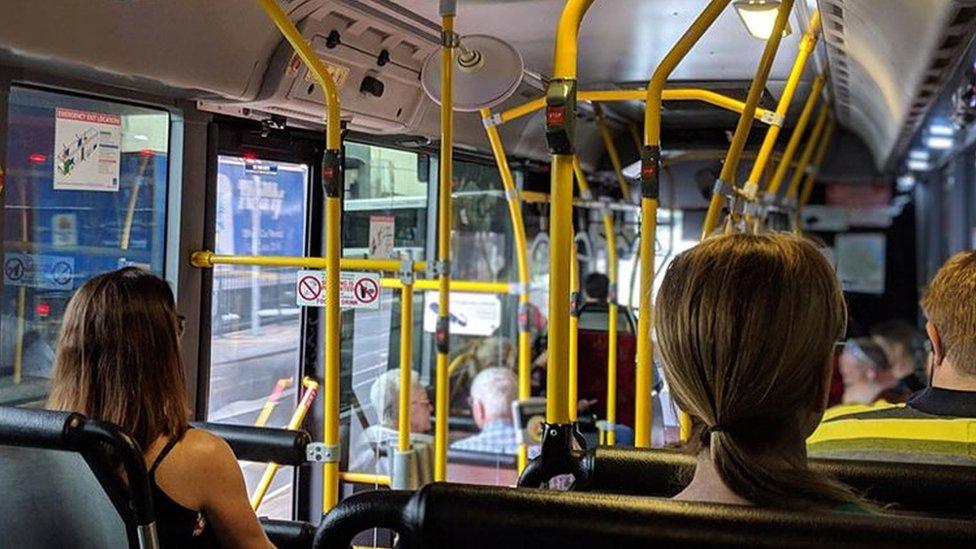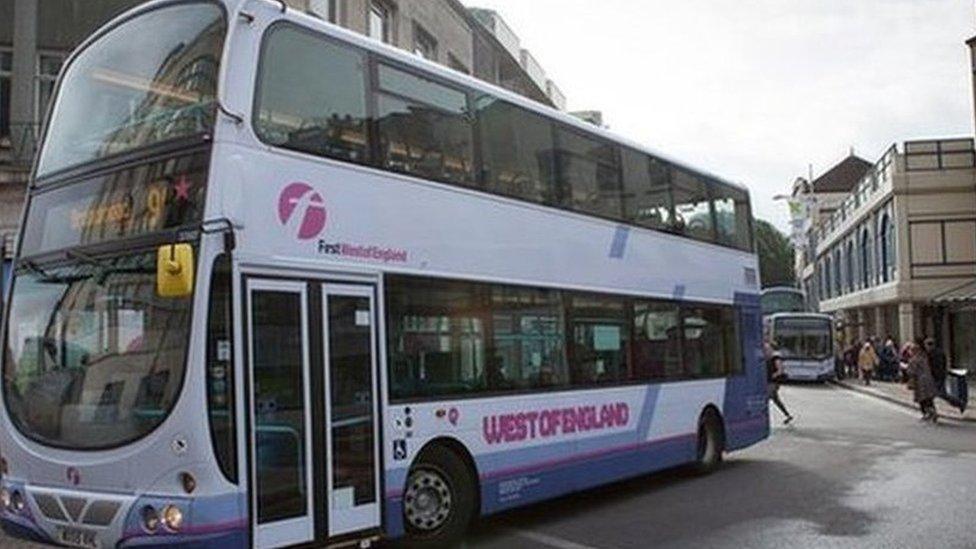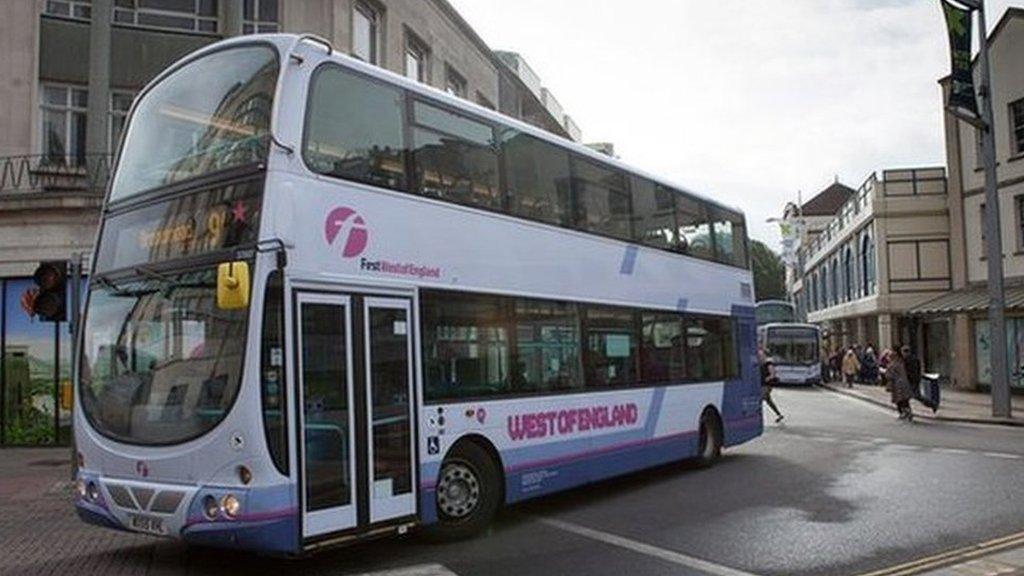First Bus to cut almost 1,500 journeys in Bristol each week
- Published

The cuts affect 19 routes across Bristol
A bus operator is slashing almost 1,500 city services each week as it struggles with driver shortages.
The cuts will affect 19 routes across Bristol immediately and are expected to last until at least 2 April.
The news comes less than two weeks before the Clean Air Zone (CAZ) comes into force.
First Bus said it regretted the cuts, adding it was making the announcement "to make it easier for travel plans to be adjusted".
According to BBC West's calculations, the cuts will mean 1,492 fewer bus journeys in Bristol each week, external.
Axed journeys will show as cancelled on the First Bus app, as well as on the information screens at bus stops, the operator said.
Driver shortage
First Bus said 95% of its journeys and all metrobus services would continue to operate as planned.
It said in a statement on its website: "We are doing our utmost to address the driver shortage but doing so will inevitably take some time."
The operator continued: "Cancelling these journeys in advance also enables our operations teams to focus on delivering a more reliable service for our customers, rather than dealing with cancelling journeys on the day."
'Hugely disappointed'
West of England Mayor Dan Norris said the region was short of between 200 and 300 bus drivers, with the average driver working a 50 hour week.
He said he had been unaware of the latest round of service cuts and was "hugely disappointed" that he - and customers - had not been given more notice.
Thangam Debbonaire, MP for Bristol West, said she would be contacting First Bus to "demand answers".
"This chaos will only make life harder for people already struggling to pay the bills this winter," she said.
The Bristol CAZ is due to start on 28 November and will see drivers of the majority of the most polluting cars charged £9 a day to enter the city centre.
The aim is to improve air quality, by encouraging people to either upgrade their vehicles, to take public transport or active travel such as walking or cycling.

Follow BBC West on Facebook, external, Twitter, external and Instagram, external. Send your story ideas to: bristol@bbc.co.uk , external
Related topics
- Published13 October 2022

- Published28 September 2022

- Published26 August 2022
